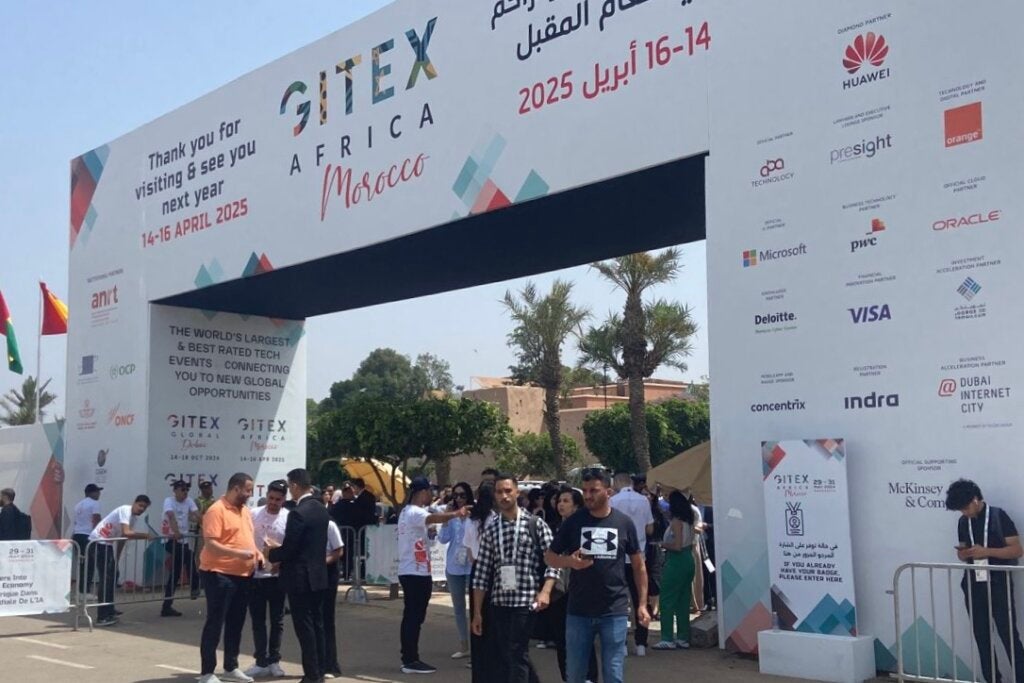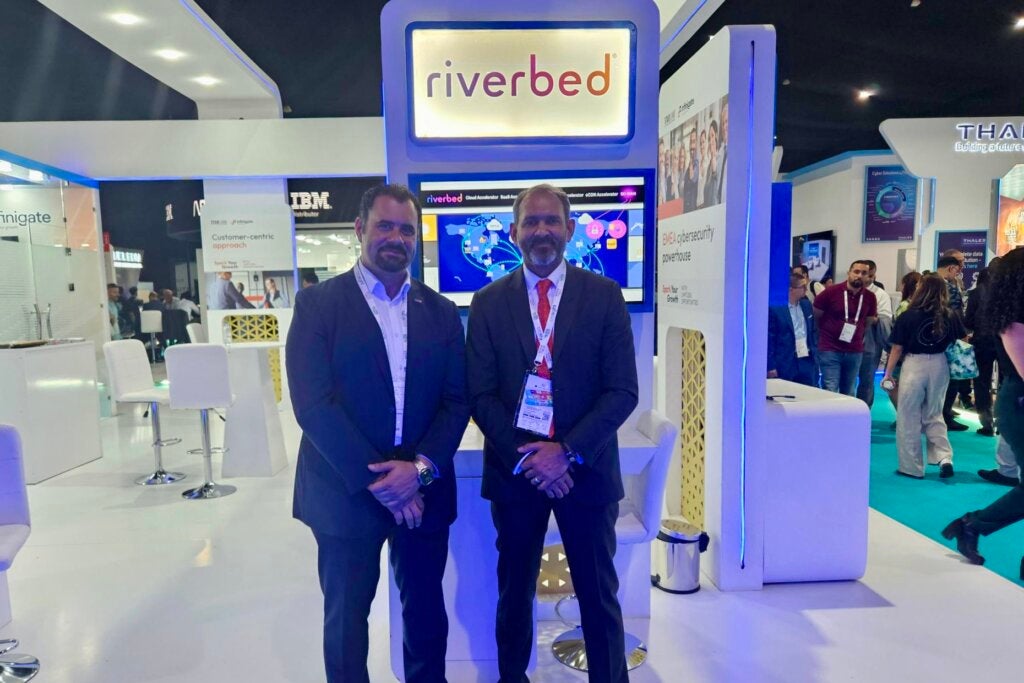 GITEX Africa took place in Marrakech from May 29th to 31st, bringing together technology giants, startups and investors from over 130 countries, plus an estimated 50,000 visitors. Hosts and attendees were united in their mission to integrate Africa into the global AI economy. Riverbed was thrilled to join one of its leading regional distributors, Starlink, to showcase our Riverbed Application Acceleration portfolio with great success.
GITEX Africa took place in Marrakech from May 29th to 31st, bringing together technology giants, startups and investors from over 130 countries, plus an estimated 50,000 visitors. Hosts and attendees were united in their mission to integrate Africa into the global AI economy. Riverbed was thrilled to join one of its leading regional distributors, Starlink, to showcase our Riverbed Application Acceleration portfolio with great success.
Engaging in meaningful discussions about Riverbed’s role in Africa’s emerging tech landscape with attendees from South Africa, Nigeria, Ghana, and other parts of the continent, we identified three key takeaways from this extraordinary event.
1. Satellite connectivity is key
Africa’s technology infrastructure is rapidly developing, yet it has some way to go to match the speed and standards common in the Western world. As operating from cities isn’t always possible, realistic, or necessary, many African companies, particularly those in remote or rural areas, rely heavily on satellite connectivity.
But even large organizations with urban locations depend on the technology. For example, one major bank we spoke to has sites in Rabat, Casablanca, and Marrakech with an MPLS link, and still uses satellite connectivity for their remote branches to transfer data. After all, it’s secure and functional. However, it can be made stronger, faster, more reliable, and more cost-effective by adding Riverbed’s Application Acceleration solutions.
Latency can be high when data is transferred on a satellite connection across distant locations. It can rise even further as the amount of data and connected devices businesses deal with increases. Organizations often boost bandwidth to try and remedy these issues, at high financial cost. Still, it’s a myth that more bandwidth guarantees higher throughput; in reality, latency hampers maximum throughput, making bandwidth irrelevant.
Another way companies try to overcome their latency issues is by installing tools designed for this purpose. These can be unpredictable, slow and costly, leading to data becoming stale in transit and arriving later than it’s needed.
Enter Riverbed’s Application Acceleration portfolio, which empowers companies to quickly and efficiently distribute data across satellite connections. It’s scalable and flexible, and has been specifically made to help firms overcome network speed bumps like latency, congestion, and sub-optimal last-mile conditions. All securely, with market-leading encryption for complete peace of mind.
With Acceleration, businesses can make double-digit improvements in data transfer speed. Unsurprisingly, many GITEX Africa attendees were interested in employing the platform primarily for this purpose.
2. The cloud hasn’t arrived… yet
At global events, cloud technology is often a hot topic, but this was not the case at GITEX Africa, as it hasn’t reached much of the continent yet. However, with rapid technological advancements across Africa, the cloud is expected to arrive soon, and businesses must be ready to seize this opportunity. Riverbed can support companies with local optimization and is prepared to help migrate data and streamline traffic to, from, and within the cloud or any network, on- or off-premises.
Several attendees were keen on future-proofing their operations, recognizing that the cloud is a significant development likely to emerge soon.
3. Remote connectivity must be considered
One topic that did prove a common conversation starter was the use case of data center disaster recovery (DCDR). Organizations in Africa are consistently looking to improve latency and connectivity through their disaster recovery and backup. This is critical when you have data replicating between the data center and the disaster recovery site, with remote workers connecting to data centers through laptops.
At Riverbed, we offer two-step support in this area. First, we address data replication and flow between the company’s sites. Second, we install client accelerators on agents’ laptops, speeding up and securing systems no matter which network they’re connected to.

In conclusion, big things are happening in the African market. Connectivity, the cloud, and remote working were all discussed in initial conversations, and we look forward to talking to visitors more in the coming weeks and months about their goals in these areas.
